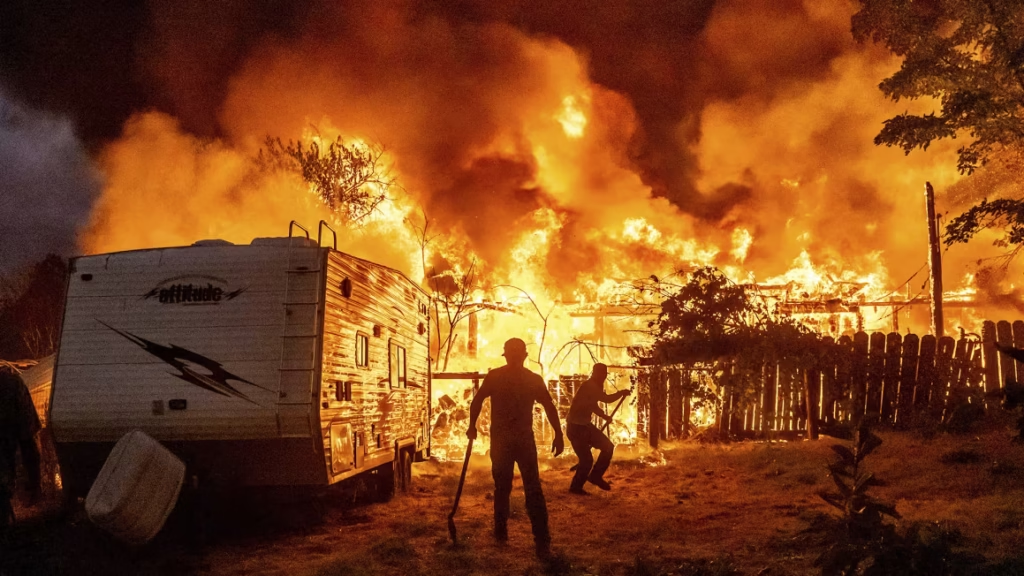A fast moving wildfire has swept through Chinese Camp, one of California’s oldest Gold Rush settlements, leaving behind destruction and heartbreak. The blaze was part of the TCU September Lightning Complex which ignited after thunderstorms struck the Sierra Nevada foothills. Fueled by dry vegetation and strong winds, the fire grew rapidly and forced nearly 100 residents to evacuate.
Chinese Camp was founded in 1849 by Chinese miners during the Gold Rush and had long been regarded as a living ghost town that preserved rare glimpses of 19th century life. The community once boasted hotels, saloons, gambling halls, and even one of the earliest post offices in Tuolumne County. Until now it stood as a quiet symbol of Chinese American history in California’s gold country.
The wildfire destroyed multiple structures including at least five homes and damaged parts of the historic town. While some landmarks such as the Catholic church built in 1855 and the general store appear to have survived, much of the town’s fragile heritage has been lost. Firefighters battled the flames across more than 13,000 acres in Tuolumne and Calaveras counties but containment was difficult in the face of extreme conditions.
Residents described terrifying escapes as flames swept through the town with little warning. One survivor recalled leaving her home with nothing but the clothes on her back as fire engulfed buildings around her. Others spoke of the devastation of seeing their heritage and community vanish in minutes.
The destruction of Chinese Camp highlights both the growing threat of wildfires in California and the vulnerability of historic communities. For historians and locals alike, the loss is more than physical—it is a cultural tragedy that underscores the need for stronger preservation and protection in an era of increasingly severe climate related disasters.


